News
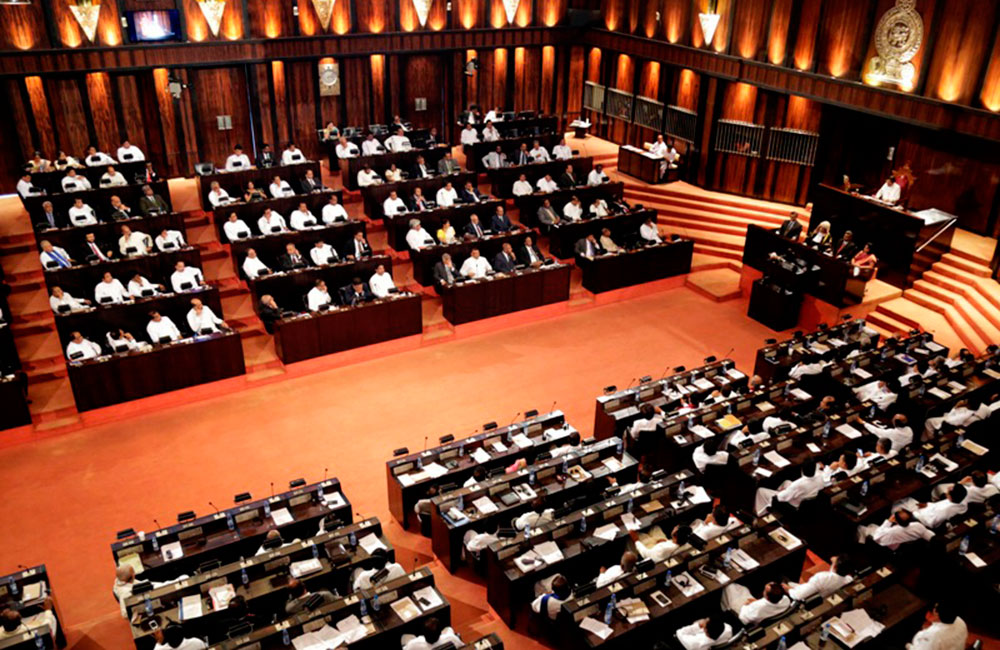
IMF agreement: Govt gets 120 votes in Parliament
The resolution for the implementation of the arrangement under the Extended Fund Facility of the IMF for Sri Lanka passed in Parliament on Friday (28).
Votes in favor: 120 Votes against: 25
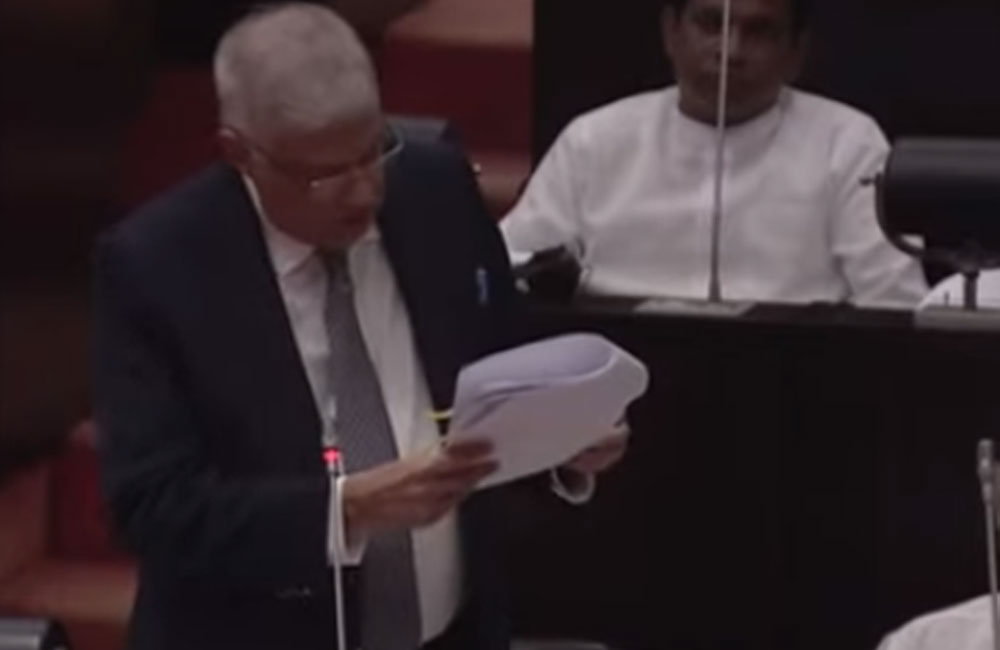
President on regaining foreign creditors' trust
President Ranil Wickremesinghe said today (26) that Sri Lanka has been able to win back the trust of foreign banks and financial institutions.
Making a statement in parliament, he said there was a need to create financial stability and to protect low-income groups.
For the first time, interest in lieu of foreign debt could not be paid due to the foreign exchange crisis, he said.
The president said talks were underway with all creditors to restructure both foreign and domestic debt.
Restructuring domestic debt is yet to be decided, he said.
President Wickremesinghe assured that the EPF members would not be affected in any way.
"The World Bank too, agrees that those living in poverty needs to be looked after", he added.
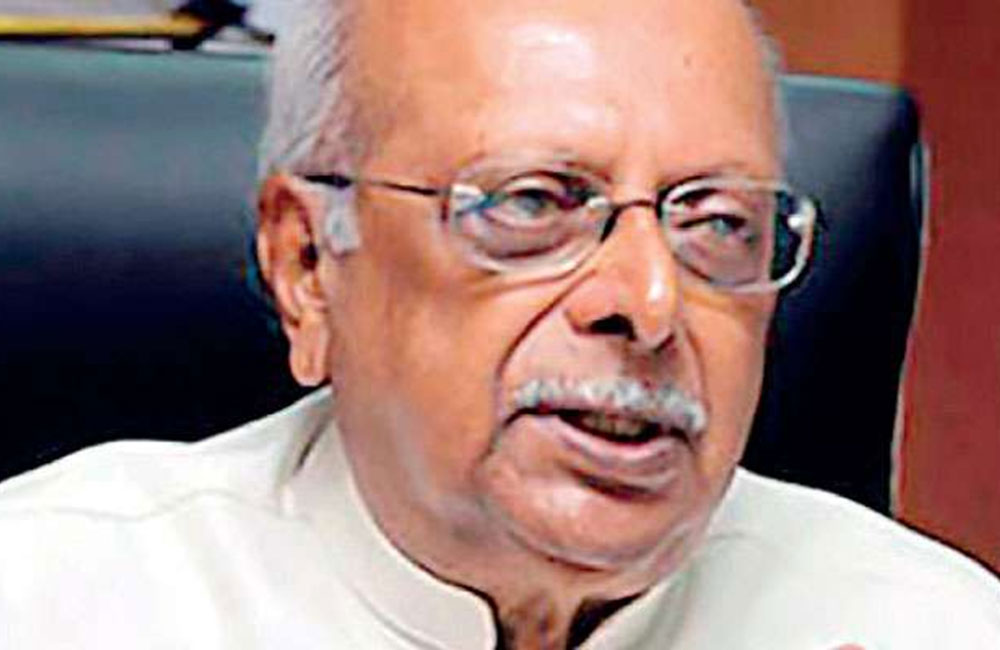
LSSP removes Tissa Vitarana as secretary
The LSSP has removed Prof. Tissa Vitarana as secretary of the party.
A member of the party’s central committee said the removal came after Vitarana’s attempt to organize a separate May Day rally and join the government.
Vitarana had wanted the LSSP not to take part in a combined event by leftist parties as the Socialist People’s Front, said the CC member.
The CC on April 22 met and in a unanimous decision, replaced him with Wellappulige Abeysena, he added.
Vitharana disputes claim
However, Vitarana still claims himself to be the legally appointed secretary of the LSSP.
He refuted claims to the contrary, and explained that a group of around 16 met at a purported CC meeting and removed him from the position of secretary.
However, only the party’s secretary is empowered to convene the CC, Vitarana said, adding that he would initiate legal action regarding his purported removal.
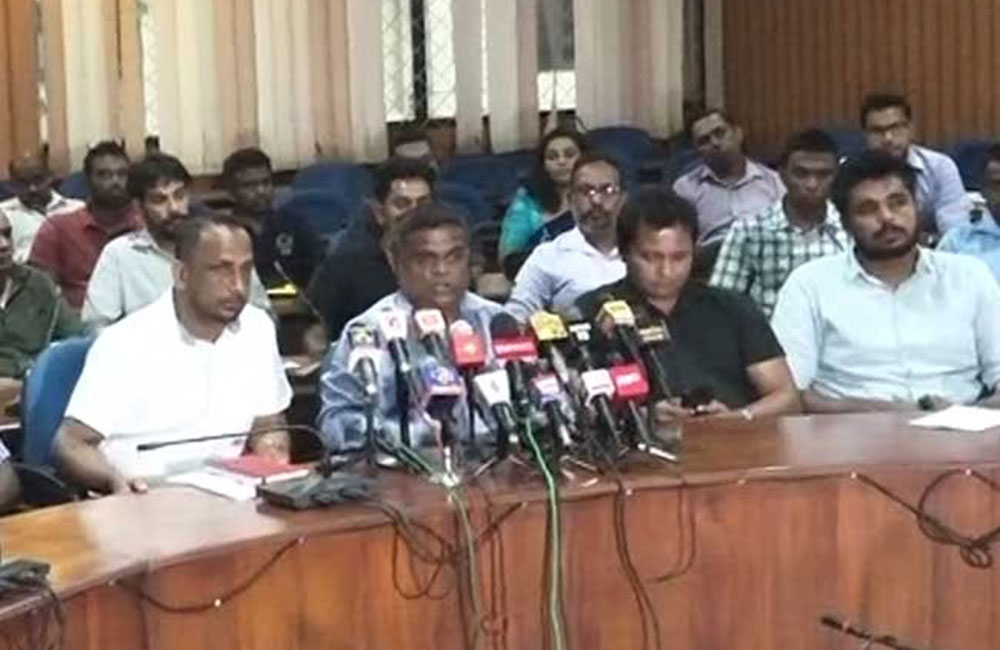
FUTA to decide on A/L paper-marking after talks with President
The Federation of University Teachers’ Association (FUTA) has decided to make a final decision pertaining to the marking of the 2022 G.C.E Advanced Level examination answer sheets following a discussion with the President.
This decision was made by the university lecturers at a special discussion held this evening (25 April) by FUTA, in order to arrive at a final decision on engaging in the A/L answer script evaluation process.
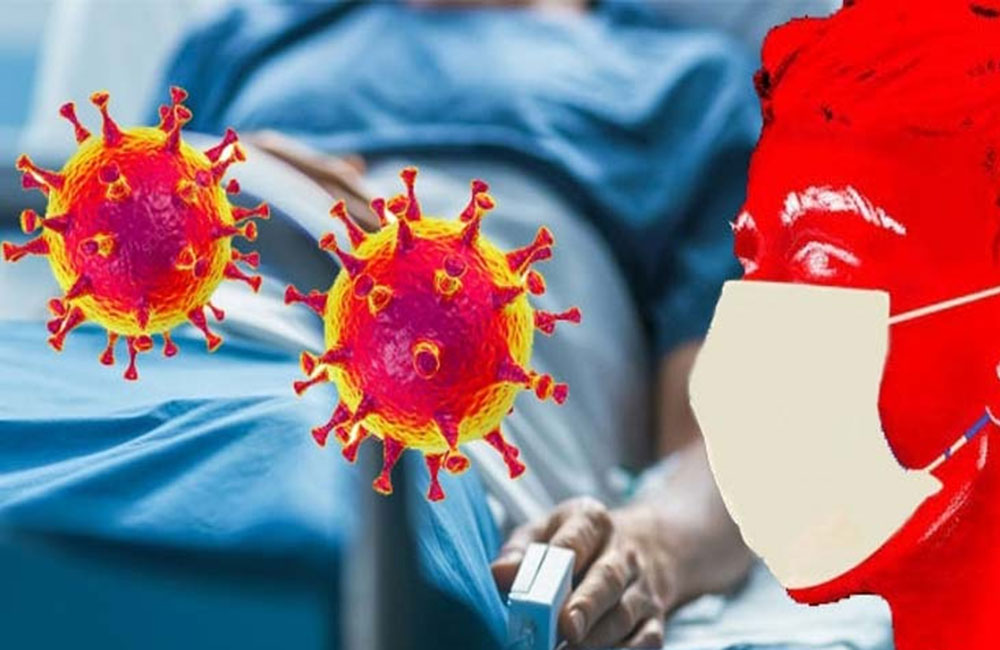
Seven more Covid-19 patients confirmed yesterday
Seven persons were confirmed yesterday (26) to be having the Covid-19 virus, said the Government Information Department.
With them, the number of Covid-19 patients in the country totals 672,143, it said in a statement.
A day earlier, four infected persons were confirmed.
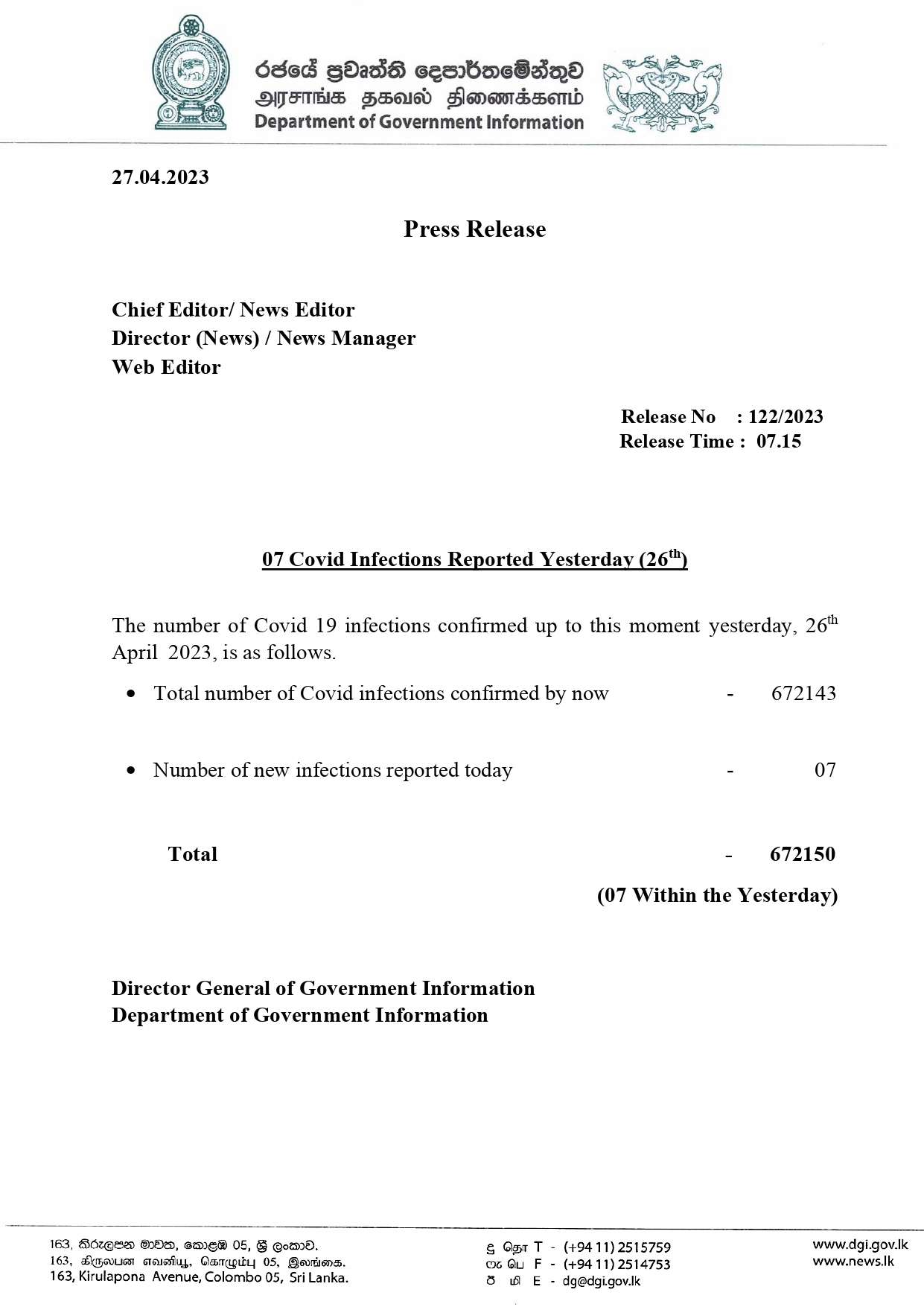
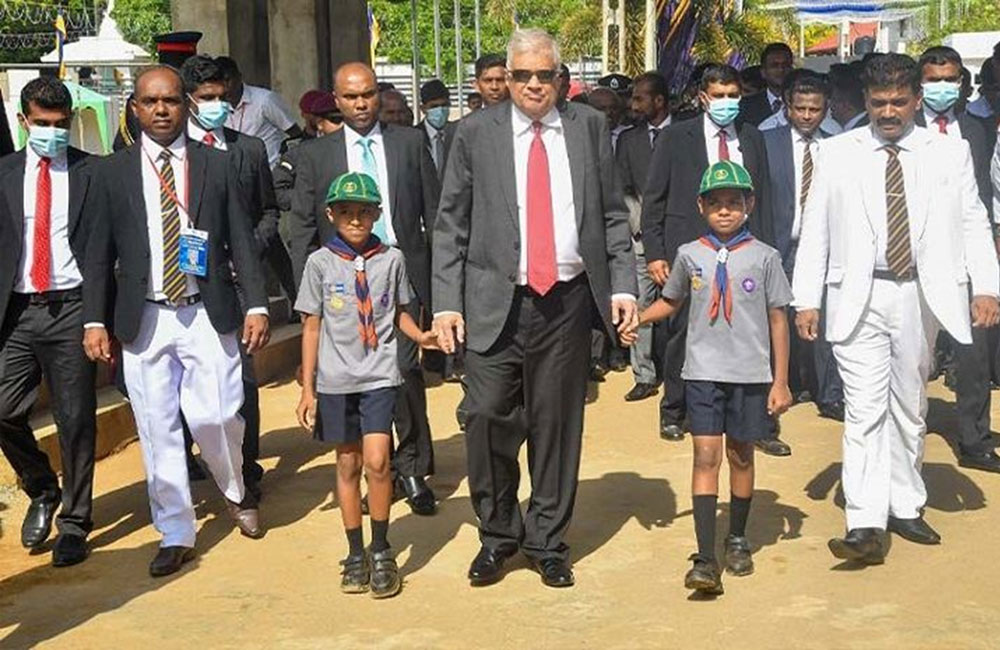
No A/L & O/L : President speaks about future education system
The school education system in our country should be revised and improved, President Ranil Wickremesinghe said on Tuesday (25).
According to the President’s Media Division (PMD), the President stated that with 13 years of education, Sri Lanka needs to strive towards a more successful education system like that of America.
He said the nation must strive towards an education system where regular and advanced level exams are not held, but rather, the SAT exam and school report are considered.
President Ranil Wickremesinghe also stated that any attempt to disturb the education system of the country, whether directly or indirectly, will not be permitted, and if required, new legislation will be introduced to address such conduct.
The President stressed the pivotal role of education in shaping the future of the country and announced his plans to establish a modern education system that aligns with the demands of the 21st century. He further pledged to enhance the international reputation of Sri Lanka through these efforts.
He said that during yesterday’s cabinet meeting a new cabinet committee on education was appointed, consisting of himself, the education minister, and several other cabinet ministers.
The President made the remarks while attending the Matara Rahula College centenary celebration ceremony this morning (25), where a three-day Educational Exhibition and Art Festival ‘Vidyabhimani’ is being held at the College. A special commemorative stamp was also issued by the President to mark the occasion.
Principal Major Sudath Samarawickrama presented a commemorative gift to the President at the event.
The portrait of the President painted by a 11th-grade student of the College Yonal Mewidu, was also presented to President Wickremesinghe.
Addressing the gathering, President Wickremesinghe stressed the importance of education for the future of the country and stated that the government’s program to build a developed Sri Lanka by 2048 gives special attention to education. The government’s aspiration is to create a new education system in the country by 2035, and the government is ready to spend to modernize education in the future.
Addressing the gathering, President Ranil Wickremesinghe further said; First of all, I would like to express my gratitude for being invited to the Centenary Celebration of Rahula College in Matara. As we talk about Rahula College, we must not forget to acknowledge its former contributors, such as Mr. Gordon Pius, Notary N.D.T. Rajapakse, and C.A. Odiris Silva, who deserves a special mention.
Like all the prominent families in Matara, my family also played a significant role in supporting the development of Rahula College. It’s important to remember not just Mr. C.A. Odiris Silva but also his son from the Kanda Udaarachchi family including Mr. Ariyathilaka, Mr. Dharmapala, Mr. Harischandra, and many others.
Speaking of Mr. Dharmapala, he assisted me immensely when I first entered politics. The first public speaking event I attended was a two-day meeting he organized. I have met him several times since then, and he always talked about Rahula College.
In 1977, after Mr. J.R. Jayawardena became the President, he extended his help to this school. In 1980, upon his request, Mr. Jayawardena visited Rahula College. Even during my tenure as the Minister of Education, he talked to me about the school. He is our most senior politician and former senior leader of the United National Party, and thus we must fulfil his demands. Many other families have also contributed to the school’s growth, including the Wanigasekara family and the Wijetunga family, who I remember fondly.
Today, Matara Rahula College is a major educational institution in Sri Lanka, and many individuals who have served our country have graduated from here. As the President, I firmly believe that education is the greatest gift we can give to our youth. In the 19th and 20th centuries, many schools were established to provide education beyond those times, and Mr. C.W.W. Kannangara’s free education policy made it possible for all to obtain a secondary education.
However, we are now in the 21st century, and we must provide our children with an education that meets the demands of the time. During my visit to the College, I asked a young boy his age, and he responded, “Ten.” If he lives until he is 80, he will see the year 2090. Therefore, it is our duty to create an educational system that is well-equipped to face the challenges of the future.
Today, I am proud to say that my government is working towards 2048 and beyond. As part of our plan, we have committed to creating a good education system in the country by 2030.
In the next two or three years, we will be investing in a new economic program. After that, a large part of the funds we receive will be dedicated to education modernization programs. We believe it is crucial to create an education system that can face the future, as the youth of our country is our only national resource. They should be given a good education and build the future.
I have looked at countries like Singapore, Israel, and Switzerland, which have managed to succeed through human resource development despite limited resources. I believe we can do the same.
If I were to ask the teaching staff today whether it is possible to continue until 2050 according to our current education system, the answer would be “impossible.” That’s why we need to go for education modernization as soon as possible.
I want to make it clear that no one will be allowed to disrupt or interfere with the education system of the country, and if necessary, we will bring laws to ensure no one interferes with the education system. Education determines the future of our country, and if we establish a formal education system, we can make our country a major hub in the Indian Ocean.
That’s why the Minister of Education and I recently discussed and appointed a Cabinet Committee on Education. The Prime Minister, Education Minister and I, together with several others, will be part of this committee.
Our focus is on creating a future-oriented education system, and we have received reports from the National Education Commission and several other departments, including parliamentary committees. We must use these reports to find out how to move towards our goal.
By 2070, a bigger change will take place in society, and it will affect education. We are only seeing part of the technology now, including artificial intelligence and new arrivals like ChatGPT. We need to decide whether we want a school-centred education system or a student-centred system to prepare for the future.
I strongly believe that the school education system in our country should be revised and improved. With 13 years of education, we need to strive towards a more successful education system like that of America, where regular and advanced level exams are not held, but rather, the SAT exam and school report are considered.
To achieve this, we must introduce new subjects, such as climate change and history, while also emphasizing the importance of science, art, literature, and geography. Every student must study a science subject and an art subject. Also, English must be taught in every school within the next 10 years. We are currently working to connect all A/L to the internet, and we plan to extend this to the O/L schools as well.
Furthermore, I commend the Vanigapatuna dance performance I witnessed today, and I encourage more programs like this to be developed. In addition, we aim to implement professional programs received from Finland.
We also plan to merge the Vocational Training Authority and the National Apprenticeship Board, turning the current vocational training centres into vocational schools to triple the number of students. Additionally, we hope to provide loans on concessional terms without interest in the first two or three years to those who want to enrol in government and non-government universities for higher education.
To increase the number of engineers and doctors in the country, we aim to establish new universities that will allow young people to engage in higher education while working. Currently, we only have 2,500 engineers passing out annually. Our target is to have 10,000 engineers and 5,000 doctors passing out annually in the first phase.
To achieve all these goals, we plan to create a new system with support from institutions such as the Asian Development Bank and the World Bank. This system will enable us to build a strong education system that can face the future and help us become a developed country by the century of independence in 2048. We will introduce these activities through the cabinet committee, discuss them in parliament, and implement them further.
Minister Kanchana Wijesekera, State Minister Shantha Bandara, President’s Senior Adviser on National Security and Chief of Presidential Staff Sagala Ratnayake, Southern Province Governor Willy Gamage, Postmaster General Ruwan Sarathkumara, Matara Rahula College Principal Major Sudath Samarawickrama, and other faculty members, former students, and many others participated in this event.
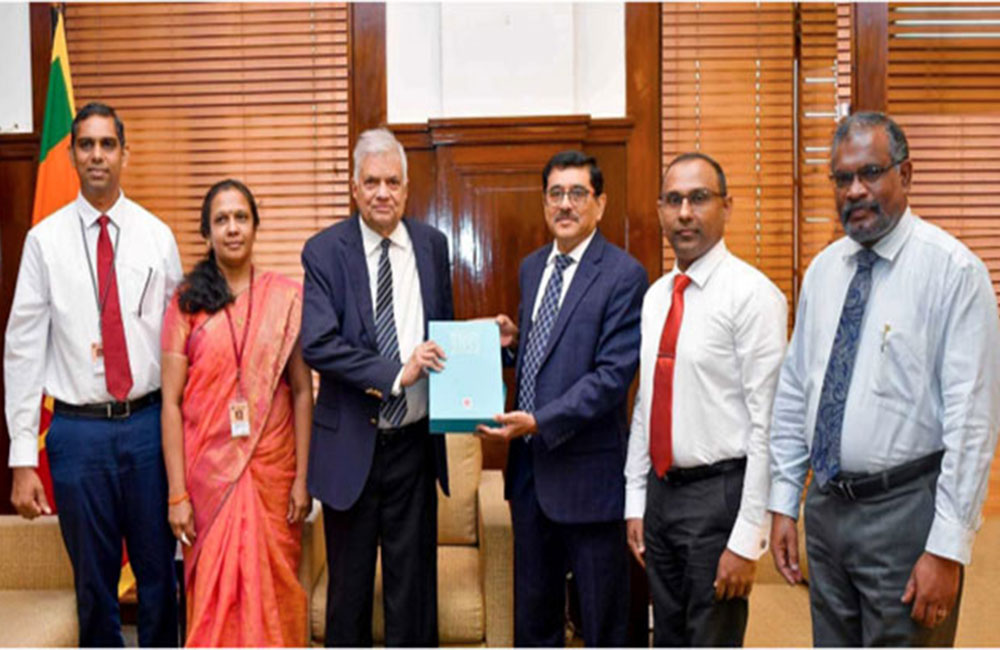
Central Bank of Sri Lanka releases its Annual Report for 2022
The Annual Report of the Central Bank of Sri Lanka (CBSL) for the Year 2022 was presented today (27) to the President and Minister of Finance, Economic Stabilization and National Policies, Ranil Wickremesinghe by the Governor of the Central Bank, Dr. P Nandalal Weerasinghe.
The seventy third Annual Report of the Monetary Board of the Central Bank of Sri Lanka was presented to the President in terms of Section 35 of the Monetary Law Act No. 58 of 1949.
Secretary of the Ministry of Finance Mr Mahinda Siriwardana, Director of the Economic Research Department of the Central Bank of Sri Lanka Dr. P.K.G. Harishchandra, Additional Directors of Economic Research Dr. Mrs. S. Jegajeevan and Dr. L. R. C. Pathberiya also participated in this event.
Presented as the 73rd Annual Report of the CBSL, this report consists of four main parts.
Accordingly, the first part consists of 08 chapters and 30 sub-chapters explaining the state of the economic affairs of the year, while the second part consists of a collection of gazettes and circulars related to various policy measures taken by the Government and the CBSL.
The third part of this report explains the departments of the CBSL and their related roles and the fourth part includes a list of laws and ordinances related to the banking system connected to the Government and the CBSL.
In accordance with Section 35 of the Monetary Law Act, the Monetary Board of the CBSL is required to produce an annual report on the economic conditions and the policies taken for that year and submit it to the Minister of Finance within four months after the end of the relevant year.
The 2022 annual report of the Central Bank of Sri Lanka can be accessed through the link below.
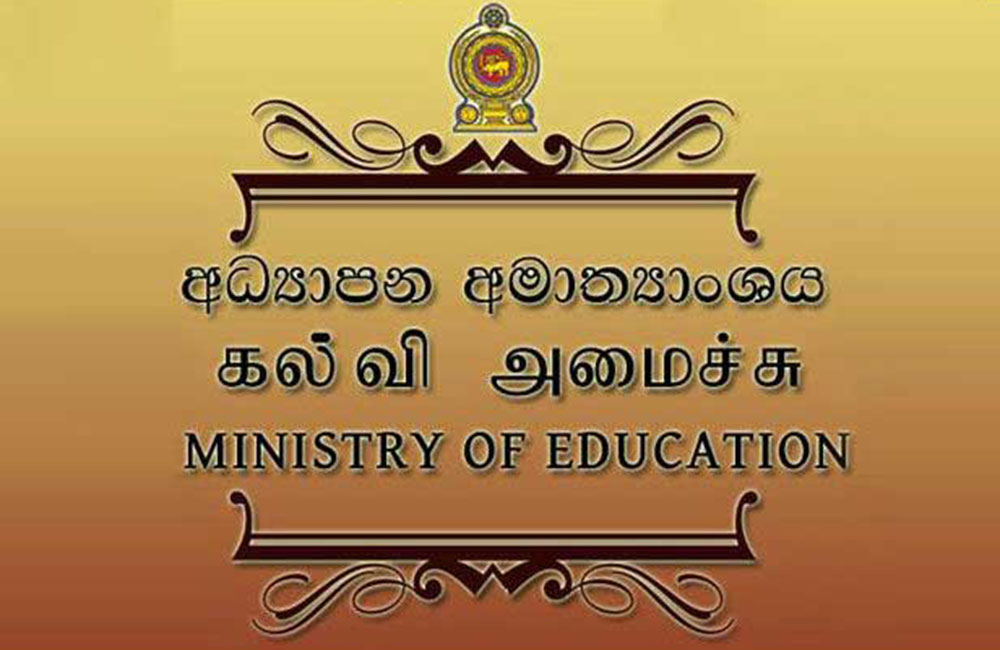
State school admission : Update from Education Ministry
The acceptance of applications for student enrollments between Grades 2 to 11, except Grade 6, has commenced, the Ministry of Education announced.
The Ministry said in a statement, those requiring admission must send in their applications to the relevant schools via registered post.
State schools have taken the necessary measures to fill the vacancies in schools as per the criteria in the circular issued by the Education Ministry in this regard.
The Ministry added that thereby, it will not issue letters for school admissions for grades 2-11 in the future.

Sri Lankan govt denounces blacklisting of Wasantha Karannagoda by US
The United States has designated the Governor of the North Western Province in Sri Lanka, Wasantha Karannagoda over alleged human rights violations during his tenure as a Naval Commander.
The statement issued by the United States Secretary of State Antony J. Blinken said that thereby, Karannagoda and his wife, Srimathi Ashoka Karannagoda, are ineligible for entry into the United States.
The allegation that Wasantha Karannagoda committed a gross human rights violation, documented by NGOs and independent investigations, is serious and credible.
By designating Wasantha Karannagoda, the United States reaffirms its commitment to upholding human rights, ending impunity for human rights violators, acknowledging the suffering of victims and survivors, and promoting accountability for perpetrators in Sri Lanka, the statement added.
The statement issued by the U. S Secretary of State Antony J. Blinken:
The United States is designating Wasantha Karannagoda, Governor of North Western Province in Sri Lanka, pursuant to Section 7031(c) of the Department of State, Foreign Operations, and Related Programs Appropriations Act, 2023, due to his involvement in a gross violation of human rights during his tenure as a Naval Commander.
As a result of today’s action, Karannagoda and his wife, Srimathi Ashoka Karannagoda, are ineligible for entry into the United States.
The allegation that Wasantha Karannagoda committed a gross human rights violation, documented by NGOs and independent investigations, is serious and credible. By designating Wasantha Karannagoda, the United States reaffirms its commitment to upholding human rights, ending impunity for human rights violators, acknowledging the suffering of victims and survivors, and promoting accountability for perpetrators in Sri Lanka.
The bilateral relationship between the United States and the Government of Sri Lanka is based on 75 years of shared history, values, and a commitment to a free and open Indo-Pacific. As we continue to build our bilateral relationship, we are committed to working with the Sri Lankan government on advancing justice, accountability, and reconciliation, including promoting security reform that maintains human rights at the forefront while ensuring Sri Lanka has the resources and training to properly address emerging security concerns.
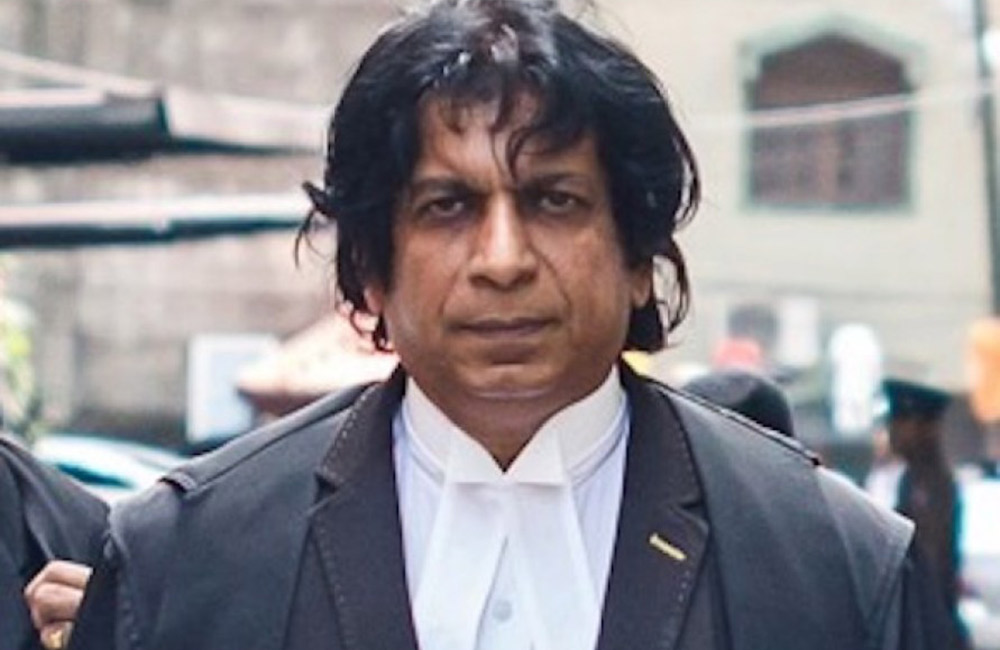
Appeal Court prevents TID from recording a statement from Former AG Dappula De Livera
The Court of Appeal on Monday issued an interim order on the Terrorist Investigations Division preventing the arrest or recording a statement from Former Attorney General Dappula De Livera
The Former Attorney General was summoned to the TID on three separate occasions to record a statement with regard to a comment he made over the 2019 Easter Sunday Attacks.
Dappula De Livera had filed an application challenging the decision taken to summon him and record a statement with the Court of Appeal.
It was taken up for consideration by Justice Nissanka Bandula Karunaratne and A. Marikkar on Monday (24)
President's Counsel Romesh De Silva appeared for the Former Attorney General, along with Attorneys Shanaka Cooray and Dimitri Abeysekera.
-----------------------------------------------------------------------------------------------------------------------------------------------------------------------
Former AG Dappula a no-show at TID on Monday (24)
Sri Lanka's Former Attorney General Dappula De Livera did not turn up at the Terrorist Investigations Division on Monday (24), after he was informed to appear at the TID.
He was summoned to the TID to record a statement with the regard to a comment he made over the 2019 Easter Sunday Terror Attacks.
Police Spokesperson SSP Nihal Thalduwa told News 1st that Former Attorney General Dappual De Livera did not visit the TID on Monday (24).
Former Attorney General Dappual De Livera was summoned to the TID for the third time on Monday (24).
Sri Lanka's Former Attorney General Dappula De Livera was summoned to the Terrorist Investigations Division to record a statement over a comment he made regarding the 2019 April Attacks in May 2021, days ahead of his retirement.
On the 17th of May 2021, Former Attorney General Dappula De Livera said, "There is a Grand Conspiracy with regard to the 2019 April Attacks."
He said that information by the State Intelligence Service with times, targets, places, method of attacks and other information is clear evidence there was a Grand Conspiracy in place.
Counsel appearing for Dappual De Livera, PC commented on the matter after filing objections with the TID.
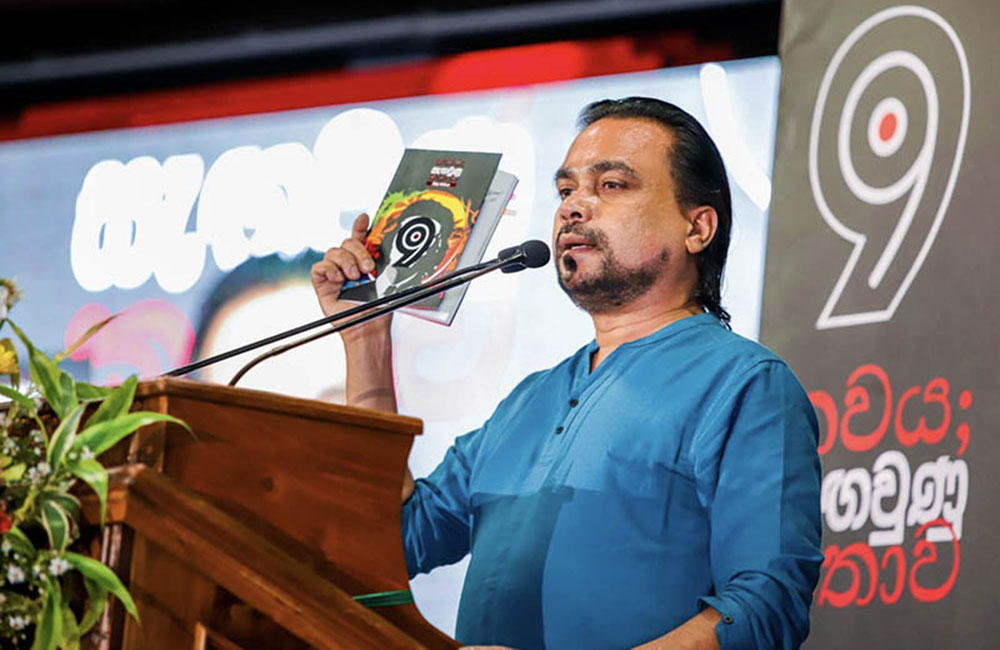
US ambassador slams Wimal’s “fiction” book
US Ambassador to Sri Lanka has responded to allegations made by MP Wimal Weerawansa accusing the US of being part of a conspiracy related to a regime change during the ‘Aragalaya’ anti-government protests in 2022.
Taking to Twitter, Ambassador Julie Chung said that she was disappointed that an MP has made baseless allegations and spread outright lies in a book that should be labelled “fiction.”
“For 75 years, the US & SL have shared commitments to democracy, sovereignty, and prosperity – a partnership and future we continue to build together,” she added.
Her comments come after MP Weerawansa revealed during the launch of his book “Nine; The Hidden Story” that a plan was hatched to assassinate former President Gotabaya Rajapaksa and other high-ranking officials of the armed forces in order to pacify the United States of America (USA).
MP Weerawansa further stated that even former President Gotabaya Rajapaksa was seen adhering to certain instructions of the US Ambassador to Sri Lanka Julie Chung at the time.
Meanwhile, the Ministry of Defence has also issued a statement responding to the allegations raised by MP Wimal Weerawansa against former Army Commander Shavendra Silva.
MP Wimal Weerawansa slammed former Army Commander Shavendra Silva alleging that he also supported the conspiracy to create an interim administration in Sri Lanka using the ‘Aragalaya’ anti-government protests in 2022.
Speaking during an event marking the launch of his book, MP Wimal Weerawansa stated that the plan for an interim administration was hatched with the involvement of Shavendra Silva who suspiciously left for India a day before the May 09th unrest.
Responding to the allegations, the Defence Ministry clarified that the Deputy National Security Advisor Level Meeting of the Colombo Security Conclave, a security conference organized between friendly countries in the South Indian Ocean region, was held in India on 07 July 2022.
Issuing a statement, the Ministry of Defence emphasizes that under the directions and approval of the then President of Sri Lanka and the Defence Ministry, the Chief of Defence Staff (CDS) and former Commander of the Army General Shavendra Silva participated in the Meeting representing the Government of Sri Lanka.
“Appearing on the ‘Paththare Visthare’ programme of Hiru TV, today (26), Journalist Chamuditha Samarawickrama quoting from the speech made by MP Wimal Weerawansa at the launching ceremony of his book “Nine; The Hidden Story,” said that the MP had alleged that the first plan by those behind the protests on May 09, 2022, was to assassinate the then Executive President and the defence heads inside the President’s House and that General Shavendra Silva’s visit to India, aroused suspicion,” the Ministry pointed out that.
The Ministry of Defence further emphasizes that the above statement is baseless and the Chief of Defence Staff and former Commander of the Army General Shavendra Silva was on an official visit to India in July 2022 to attend the meeting of the Colombo Security Conclave with the approval of the then President of Sri Lanka and Ministry of Defence.

Labour chief appointed director of state-owned bank
Commissioner general of labour B. K. Prabath Chandrakeerthi has been appointed to the board of HDFC Bank as an independent non-executive director.
Chandrakeerthi is a special grade officer of the Sri Lanka Administrative Service and counts 23 years in the public sector.
He also holds the vice chairmanships of the National Institute of Occupational Safety and Health and the National Institute of Labour Studies and an ex-officio member of the Vocational Training Authority and the National Child Protection Authority.
Chandrakeerthi obtained his bachelor’s degree in arts in 1998 from University of Sri Jayewardenepura and joined the government service in 2000.
He completed a master’s degree in economics in 2008, bachelor of law from the Open University in 2014 and qualified as a lawyer from Sri Lanka Law College in 2017.
He also obtained a doctorate in coastal resources management from International University of Fundamental Studies in Russia in 2016.
Chandrakeerthi has held the post of director general in the Department of Coast Conservation and Coastal Resource Management.
He is an experienced professional in the fields of tourism management, public management and public administration.
His exceptional work has been recognized by the University of Sri Jayewardenepura with the ‘Pradeep Pranama’ award and by Transparency International Sri Lanka with the integrity public servant award.
Page 254 of 663